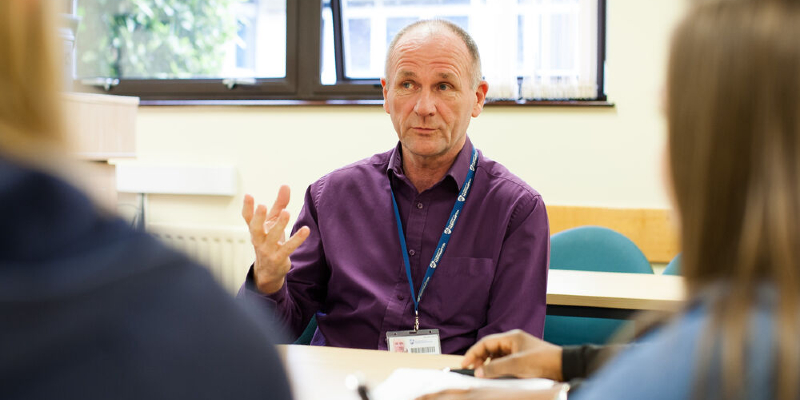News
Assisted Dying Bill needs improved safeguards for nurses
RCN Scotland highlights the need for improved safeguards for nurses in the Assisted Dying for Terminally Ill Adults (Scotland) Bill

Connect with us:
We are committed to supporting our members to provide high-quality end of life care, ensuring a comfortable and dignified death. We have a neutral position on whether the law on assisted dying should be changed, which allows us to represent and support all nursing staff, regardless of their personal or professional stance on assisted dying.
However, while we are neutral, we have a responsibility to ensure the Bill contains the necessary safeguards to protect nurses and nursing practice.
The Bill in its current form, we believe, would see registered nurses provide assistance to an individual to end their life in the majority of cases. This role for registered nurses in the Scottish Bill is different to the Bill being considered at Westminster which provides that only the coordinating doctor, or another doctor they authorise, may provide assistance.
Our view is that currently, the Bill does not sufficiently protect registered nurses. Now the Bill has passed the Stage 1 vote today, further protections are needed for nurses, both in the legislation itself and in the guidance that would follow.
Key issues that need to be addressed, if the Bill progresses, include:
- The Bill should make clear that an “opt-in” model of delivery is to be established so that only registered nurses who positively choose to participate, and who have completed mandatory training, will be expected to do so.
- Our view is that the conscientious objection clause alone does not offer sufficient protection, and that staff should be able to object to being involved based on conscience or any other reason.
- A key concern is that the Bill allows a nurse to provide a terminally ill adult with an approved substance to end their life while working alone. The Bill must require two registered health professionals to attend together to provide assistance to end a life.
- Specialist training must be provided to all nurses participating in assisted dying.
- Provision of assisted dying cannot simply be added to existing, stretched teams. If the Bill passes, dedicated resources for establishing a workforce that has opted in to provide this service, and for training and support, would be essential.
RCN Scotland Director, Colin Poolman, said:
“The RCN has a neutral position on whether the law on assisted dying should be changed, which reflects our members' differing views on the issue. However, our neutral position does not mean we are silent on the issue, and we are focused on ensuring any legal framework is practicable and contains the necessary safeguards to protect nurses and nursing practice.
“Our position is that the Bill currently does not sufficiently protect registered nurses. We now need to see substantial amendments at Stage 2.
“These amendments must include the establishment of an opt-in model for healthcare staff and mandatory specialist training for all nurses involved in assisted dying. The Bill must also be amended to require two registered health professionals to attend together to provide assistance to end life.
“Whether the Bill progresses through the next stages or not, we also want to see further, much-needed investment in palliative and end-of-life care services to improve access across Scotland."











